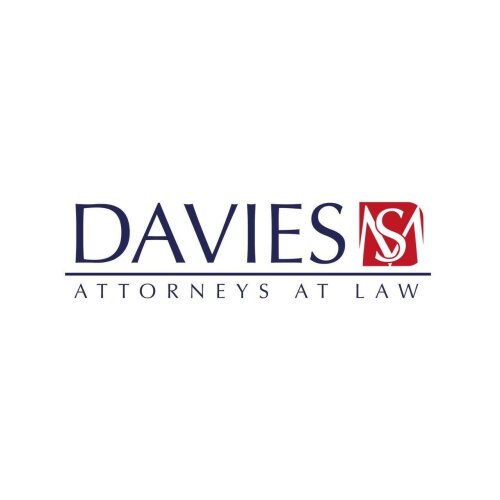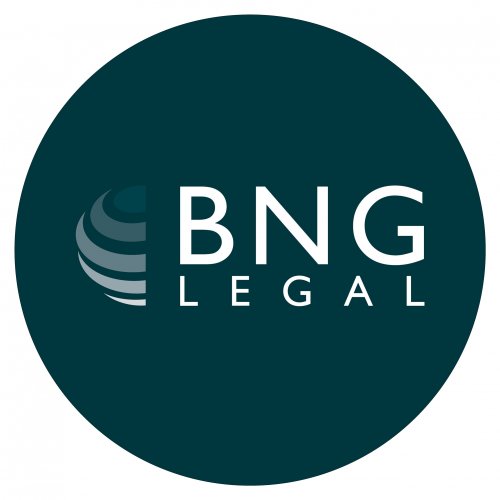Best Real Estate Lawyers in Cambodia
Share your needs with us, get contacted by law firms.
Free. Takes 2 min.
Free Guide to Hiring a Real Estate Lawyer
Or refine your search by selecting a city:
List of the best lawyers in Cambodia
About Real Estate Law in Cambodia
Real estate law in Cambodia mostly revolves around the 2001 Land Law which outlines the process of ownership, inheritance, and land use throughout the country. While the law seeks to support lawful land ownership, Cambodia's historical events have greatly unsettled land tenure security and problems often arise over disputed land rights. The Land Law recognizes ownership rights for Cambodian citizens only. However, it does allow for long-term leases and rights of use for foreigners.
Why You May Need a Lawyer
Engaging a lawyer can be essential in dealing with real estate matters in Cambodia for various reasons. Lawyers can help negotiate and draft contracts, conduct due diligence investigations to verify legal ownership, and assist in resolving disputes. Additionally, due to the complex and sometimes unclear legal framework on land ownership, a keen understanding of the Land Law and the real estate environment, which a lawyer provides, can be key in preventing future property disputes.
Local Laws Overview
Cambodian Land Law primarily recognizes two types of ownership: soft and hard title. The former is a locally recognised claim while the latter is officially registered with the national government offering more legal security. Cambodian citizens are allowed to own land whereas foreigners are not. Foreigners can however hold a long-term lease for up to 50 years, renewable. Foreigners can also own buildings and units within co-owned buildings, as long as Cambodian nationals own 51% of the building's joint ownership space.
Frequently Asked Questions
Can foreigners buy property in Cambodia?
Foreigners cannot own land directly but can own properties through various structures such as long-term leases, owning buildings on leased land, and owning units within co-owned buildings under the 2010 Condominium Law.
What is a soft title?
While a hard title is nationally registered and recognized, the soft title is locally recognized. They are common in less developed areas and the purchaser often faces higher risks as the title is not officially registered with the land management department.
Can a foreigner inherit property in Cambodia?
Yes, foreigners can inherit movable and immovable properties in Cambodia.
What sort of due diligence should be done before buying property?
It is advisable to check zoning regulations, conduct title verifications, review sale agreements, investigate disputes or restrictions, and check tax compliance of the seller.
How is property taxed in Cambodia?
Property tax in Cambodia applies to immovable properties that are valued at more than 100 million riels. The tax rate is 0.1% of the market value annually.
What is a long-term lease?
Under Cambodian law, a long-term lease allows the lessee to use the property for a period of up to 50 years and is renewable.
Is a deposit required when buying property?
Yes, a deposit is usually required with the remainder of the purchase price paid on completion of the transaction.
Can a contract be drafted in English?
Contracts can be drafted in English, however, they must be accompanied by a Khmer version which is the legally binding version.
Can foreigners apply for a home loan?
Some banks and financial institutions offer home loans to foreigners. However, terms and conditions apply and they vary between institutions.
What rights does a joint owner have?
Joint owners have the same rights to the property and must agree to any decisions regarding the property.
Additional Resources
The Ministry of Land Management, Urban Planning and Construction is the main governmental body responsible for regulating land matters. The cadastral commission is another helpful resource, responsible for resolving disputes of unregistered land. Legal advice and representation are also available through the Cambodian Bar Association.
Next Steps
If you need legal assistance in real estate, firstly, conduct due diligence to collect all relevant information. Following that, consider engaging a real estate lawyer. They will help you understand the legal implications, assist in negotiation and drafting of contracts, and advise on any potential legal challenges. Always ensure the lawyer you engage is well-versed in Cambodian real estate law.
Lawzana helps you find the best lawyers and law firms in Cambodia through a curated and pre-screened list of qualified legal professionals. Our platform offers rankings and detailed profiles of attorneys and law firms, allowing you to compare based on practice areas, including Real Estate, experience, and client feedback.
Each profile includes a description of the firm's areas of practice, client reviews, team members and partners, year of establishment, spoken languages, office locations, contact information, social media presence, and any published articles or resources. Most firms on our platform speak English and are experienced in both local and international legal matters.
Get a quote from top-rated law firms in Cambodia — quickly, securely, and without unnecessary hassle.
Disclaimer:
The information provided on this page is for general informational purposes only and does not constitute legal advice. While we strive to ensure the accuracy and relevance of the content, legal information may change over time, and interpretations of the law can vary. You should always consult with a qualified legal professional for advice specific to your situation.
We disclaim all liability for actions taken or not taken based on the content of this page. If you believe any information is incorrect or outdated, please contact us, and we will review and update it where appropriate.
Browse real estate law firms by service in Cambodia
Cambodia Attorneys in related practice areas.
Browse real estate law firms by city in Cambodia
Refine your search by selecting a city.












